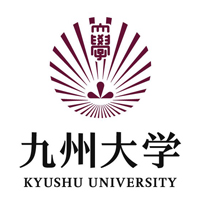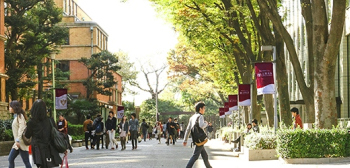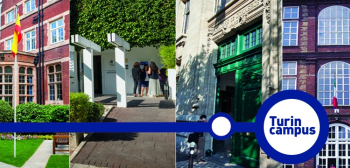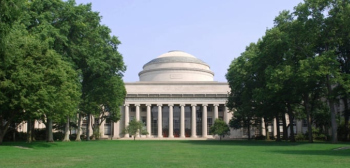九州大学
About
Read more
Read less
Kyushu University's history can be traced back to 1903 when it was established as Fukuoka Medical College affiliated to Kyoto Imperial University. In 1911, Kyushu Imperial University was re-established as one of the former seven imperial universities in Japan, and it was renamed to Kyushu University in 1947. In its history of nearly 100 years, Kyushu University has contributed to higher education in Japan. In October 2003, the university has taken advantage of new research opportunities by integrating the Kyushu Institute of Design. This integration created a unique academic environment where Science of Kyushu University and Aesthetic sense and creativity of the Kyushu Institute of Design were merged. Kyushu University was reorganized to become a national university corporation in April 2005, having been striving for further progress of education and research. Kyushu University has 8 campuses including the newly built campus in Ito area. The Faculty of Engineering moved to Ito Campus in October 2006, and other faculties will be relocated over the next ten years. With an undergraduate enrollment of 12011 and a graduate enrollment of 7186, Kyushu University has currently 11 undergraduate schools, 17 graduate schools, 3 attached research instititions and 1 university hospital. There are 3258 faculty members and 2607 administrative staff currently employed. What our society demands us the most is that the outcomes of our education, research, social contribution, and international cooperation should be plowed back into society in the visible form and also we should establish our strong presence. In order to meet this demand, Kyushu University has initiated a new reform to accomplish and further develop world-standard and advanced education and research. The reform aims at the establishment of Center of Excellence (COE), for which we have implemented ?4+2+4 Action Plan?. The action plan has two future directions such as (1)pioneering new fields of sciences based on academic achievements, and (2)developing friendly relations with other Asian countries with which Kyushu has particularly strong historical and geographical ties. The action plan emphasizes 4 fields such as (1)education, (2)research, (3)social contribution, and (4)international cooperation, based on the 2 future directions. In terms of the field of education, an internal evaluation system for appraising the performances of individual faculty members focuses on 4 categories of incentives:(1)human resources, (2)facilities and research spaces, (3)budgets, and (4)time for education and research activities. With ?4(fields)+2(future directions)+4(incentives) Action Plan?, Kyushu University has devoted itself to forming the core of education and research at the international stage.
About
Kyushu University's history can be traced back to 1903 when it was established as Fukuoka Medical College affiliated to Kyoto Imperial University. In 1911, Kyushu Imperial University was re-established as one of the former seven imperial universities in Japan, and it was renamed to Kyushu University in 1947. In its history of nearly 100 years, Kyushu University has contributed to higher education in Japan. In October 2003, the university has taken advantage of new research opportunities by integrating the Kyushu Institute of Design. This integration created a unique academic environment where Science of Kyushu University and Aesthetic sense and creativity of the Kyushu Institute of Design were merged. Kyushu University was reorganized to become a national university corporation in April 2005, having been striving for further progress of education and research. Kyushu University has 8 campuses including the newly built campus in Ito area. The Faculty of Engineering moved to Ito Campus in October 2006, and other faculties will be relocated over the next ten years. With an undergraduate enrollment of 12011 and a graduate enrollment of 7186, Kyushu University has currently 11 undergraduate schools, 17 graduate schools, 3 attached research instititions and 1 university hospital. There are 3258 faculty members and 2607 administrative staff currently employed. What our society demands us the most is that the outcomes of our education, research, social contribution, and international cooperation should be plowed back into society in the visible form and also we should establish our strong presence. In order to meet this demand, Kyushu University has initiated a new reform to accomplish and further develop world-standard and advanced education and research. The reform aims at the establishment of Center of Excellence (COE), for which we have implemented ?4+2+4 Action Plan?. The action plan has two future directions such as (1)pioneering new fields of sciences based on academic achievements, and (2)developing friendly relations with other Asian countries with which Kyushu has particularly strong historical and geographical ties. The action plan emphasizes 4 fields such as (1)education, (2)research, (3)social contribution, and (4)international cooperation, based on the 2 future directions. In terms of the field of education, an internal evaluation system for appraising the performances of individual faculty members focuses on 4 categories of incentives:(1)human resources, (2)facilities and research spaces, (3)budgets, and (4)time for education and research activities. With ?4(fields)+2(future directions)+4(incentives) Action Plan?, Kyushu University has devoted itself to forming the core of education and research at the international stage.
University highlights
- 2012#128
- 2014#133
- 2015#126
- 2016#142
- 2017#135
- 2018#128
- 2019#=126
- 2020#=132
- 2021#=124
- 2022#137
- 2023#135
- 2024#=164
- 2025#=167
- 2026#=170
QS Stars is a rating system that helps you select the right university based on your
interests. It provides a detailed look at an institution, identifying which universities rate highest in
the
specific topics that matter to you, like facilities, graduate employability, social responsibility,
inclusiveness, and more.
Campus locations
744 Motooka, Nishi-ku, Fukuoka, JP,
744 Motooka , Fukuoka , Japan , 818-0395
Similar Universities
Test preparations
Kyushu University
basic
7
no
2858
L
CN



























